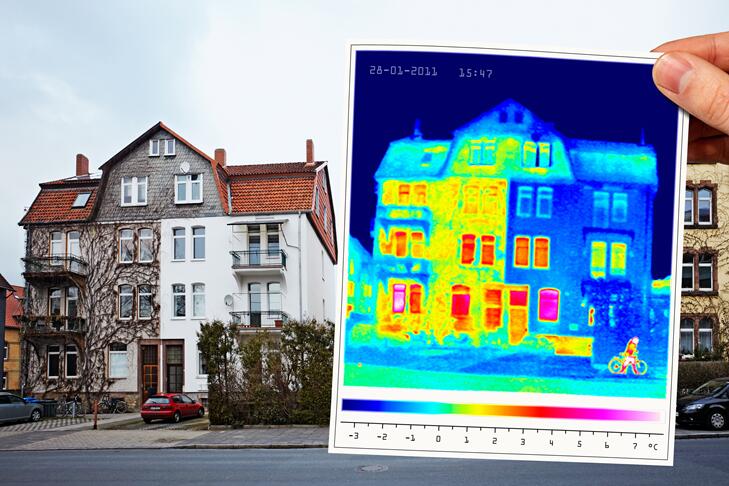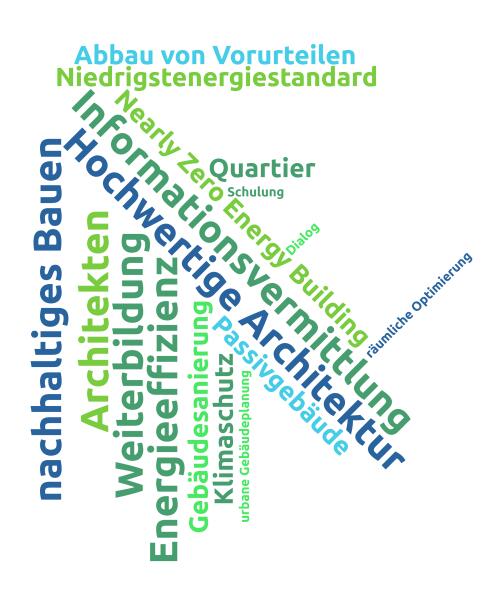Providing information on the topic of "Climate protection through sustainable construction – Conserving resources, creating development, protecting the climate"
International project funding
Subject and goals of the project
With the EU Buildings Directive, the requirements for the energy efficiency of buildings will increase significantly in the next few years. In Slovakia in particular, with the introduction of the "Nearly Zero Energy Building" (NZEB) energy standard, these requirements represent a major challenge, both for building and energy specialists and for those responsible for construction.
As part of the project, know-how and specialist information on energy-efficient building was exchanged between Germany and Slovakia on a cross-border basis and cooperation was established. Due to the European Building Directive, which prescribes the lowest energy standard for new public buildings from January 2019 and for new residential buildings from January 2021, there is an urgent need for action in both countries to push sustainable building and more climate protection. In order to reduce reservations about energy-efficient construction among planners and decision-makers and to establish the Passive House Standard more firmly, a comprehensive program of activities was developed and implemented.
Information and know-how were continuously exchanged between the Institute for Passive Houses Slovakia (IEPD) and the Energy und Environment Centre Allgäu (eza!). On the German as well as on the Slovakian side, professional events for architects and building experts, which were attended by representatives of both countries, were planned and carried out. Exemplary energy-efficient buildings were visited in order to motivate imitation. Architecturally high-quality buildings from the 1920s were replicated with today's building standards to show that energy efficiency and high-quality architecture can be easily reconciled. Continuing education seminars and courses for professionals were developed and conducted in Slovakia. Information on energy-efficient construction on the Internet and social media was continuously expanded and improved. The Internet presences of both partners were modernized and expanded to include platforms such as Facebook.
Innovation and exemplary nature of the project
The project has brought many architects in Slovakia into contact with the topic of NZEB. Preconceptions that energy-efficient construction is expensive and not of high quality in terms of design have been dispelled. Architects and developers in Slovakia have recognized the need for energy-efficient construction and are now regularly improving their know-how in this area. Networks between developers, architects and specialist planners have been established and will have a positive influence on future construction projects. Sustainability and energy efficiency, but also the spatial optimization of working and living, will be given greater consideration in urban building planning in the future.
Special aspects of the project
The topic of NZEB is now gaining significant momentum in Slovakia. Specialist courses in Slovakia on energy-efficient building have been developed and are well received. Specialist conferences and discussion forums have been launched as platforms for networking and further education for architects and building professionals and are very well attended. The cooperation between the Slovak Chamber of Architects and the IEPD has been intensified and consolidated, especially through the two "Building-A0" conferences in Slovakia, each of which was attended by more than 100 architects and construction experts.
The project has triggered many new impulses for sustainable building and more climate protection in Slovakia and in the Allgäu region, and has helped to overcome negative prejudices regarding economic efficiency and an alleged lack of architectural design freedom.
Funding subject: Energy- and resource-saving district development and renewal
Applicant:
Associated partner:
Location: Slovakia (focus: Bratislava)
Funding period: December 2015 to August 2019, Download final report
Project costs: Total volume: 248 852 Euro, DBU funding: 124 425 Euro
DBU-AZ: 32748
Note: Translation of the German version with DeepL
Last updated: 15.11.2021



